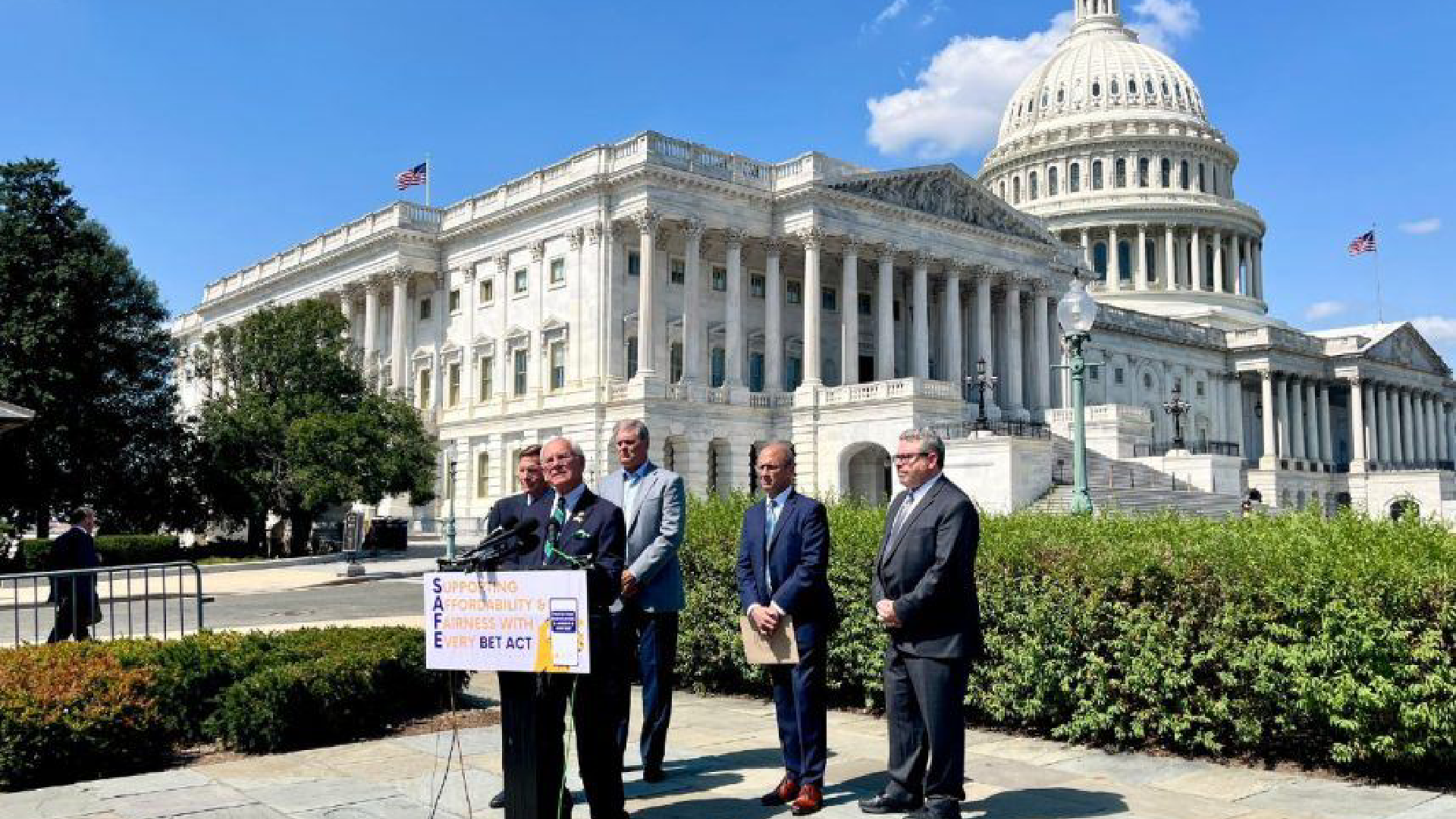
Federal Bill Seeks to Implement Sports Betting Guardrails
- 12 Sep 2024
- Gambling News
Legislation to impose federal controls on the quickly expanding sports betting sector, which is now legal and operating in 38 states plus Washington, D.C., was formally launched by U.S. Representative Paul Tonko (D-New York) on Thursday.
Under Tonko's Supporting Affordability & Fairness With Every Bet Act (SAFE Bet Act), state casino regulators would have to add a number of requirements to their sports betting regulations. The federal proposal, if approved and put into law, would mandate that sportsbooks do "affordability checks" on clients looking to place large bets and restrict gamblers to no more than five deposits in a 24-hour period.
Bettors would have to demonstrate that they have the funds to risk that much money in order to pass such checks. Additionally, it would be illegal for sportsbooks to accept credit card deposits from wagerers.
If passed, the SAFE Bet Act would also prohibit sports betting firms from running advertisements during all live sports programming and from 8 a.m. to 10 p.m. Advertisements that offer incentives such as deposit bonuses and "risk-free bets" would not be allowed.
The law also forbids sportsbooks from using artificial intelligence to create bonuses and promotions for players based on their past wagering activity. Additionally, AI would not be permitted to generate in-game lines or microbetting odds.
Sin Safeguards Are Needed by the Sin Industry
Tonko represents states that allow both online and retail sports betting, as does U.S. Sen. Richard Blumenthal (D-Connecticut), who will support the SAFE Act in the upper body of Congress. Sports betting should be more controlled than it is now, according to the two, because it has harmful societal repercussions.
Tonko compared the affordability checks to an inebriated someone attempting to buy or drink more alcohol.
“For over six years, the U.S. sports betting industry has been working itself deeper and more directly into the lives of the American people. Now, every single solitary moment of every sporting event has become a betting opportunity,” Tonko said outside the Capitol.
"Whether you’re scrolling on social media, driving down the highway past billboards, or listening to your favorite podcast or radio station, sports betting ads are there to prompt you with an endless cascade of flashy promotions,” Tonko continued. “This relationship between the gambling industry and sports has reached intolerably dangerous levels. It’s well past time for Congress to step up and make a difference.”
Blumenthal said he signed on to support the SAFE Bet Act on mental health and addiction concerns.
"We’re not banning gambling. We’re banning practices that exploit and abuse people,” Blumenthal said. “We’re stopping the promotions, enticements, bonuses, and credits that target losers.”
“Let’s be very clear: the gambling industry methodically and relentlessly targets losers,” Blumenthal declared. “That’s where the money is.”
Call for a Safe Bet
According to Tonko and Blumenthal, state governments have generally not included sufficient safeguards in their laws governing sports betting. The AGA, or American Gaming Association, quickly disagreed.
"Today’s regulated sports wagering operators are contributing billions in state taxes across the U.S., protecting consumers from dangerous neighborhood bookies and illegal offshore websites, and working diligently with over 5,000 state and tribal regulators and other stakeholders to ensure a commitment to responsibility and positive play,” Chris Cylke, the AGA’s senior vice president of government relations, said in prepared remarks.
“Six years into legal sports betting, introducing heavy-handed federal prohibitions is a slap in the face to state legislatures and gaming regulators who have dedicated countless time and resources to developing thoughtful frameworks unique to their jurisdictions, and have continued to iterate as their marketplaces evolve,” Cylke added.






